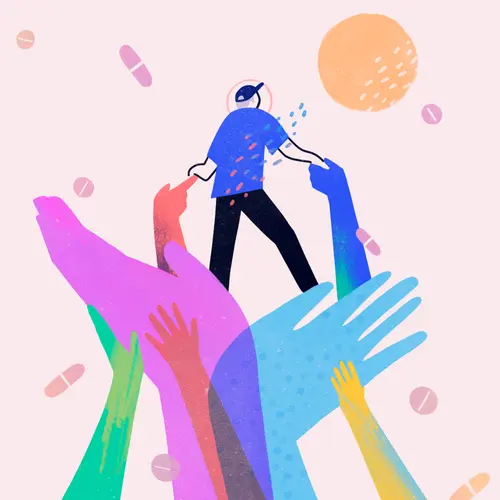Part of living with attention deficit hyperactivity disorder (ADHD) as an adult is managing the mood swings that may come with it. Emotionally, there may be times when you feel very high or very low. But luckily, there are ways to cope with mood swings. Here are eight ideas:
1. Exercise. Whether you prefer to walk, run, or swim, making time for physical activity can help ease your mood swings. Just 20 minutes of exercise a day can lower stress, boost your mood, and help you feel more motivated.
If yoga is more your speed, that’s perfect. Yoga and meditation also have been shown to zap stress. They may help with ADHD symptoms, too.
2. Write it down. Keeping track of how you feel each day can help you spot patterns in your emotions. It also may help you understand why your mood shifted, which can help you avoid those triggers in the future.
Writing in a journal or diary is good for your mental health. It can ease stress, anxiety, and depression.
3. Eat healthy food. Over the last 50 years, scientists have tried to find if certain foods, like sugar, or the artificial coloring, flavors, and preservatives found in processed foods contribute to ADHD symptoms. While no concrete connection was found, eating good food is still a good idea.
Omega-3 fatty acids, which are found in fish like salmon and tuna, are good for your brain. They help transmit dopamine and serotonin, two chemicals your body makes that can help boost your mood and keep it even.
Some people with ADHD don’t have enough vitamins B2, B6, and B9. While it isn’t clear if the low vitamins were because of the ADHD, there could be a link. Low levels of vitamin B6 can cause depression and confusion, among other things. If your body lacks vitamin B2, also known as riboflavin, you may not absorb enough vitamin B6. And vitamin B9, or folate, plays a critical role in a child’s brain development. Folate may also help treat depression.
Alcohol and smoking can lead to a vitamin B deficiency, so consider avoiding those if you have ADHD and are concerned about mood swings.
And while coffee or tea can help you feel more alert, they are stimulants. Too much caffeine can make you nervous, cranky, and restless -- which won’t help with mood swings.
4. Go to sleep. If you have ADHD, you may find it hard to sleep. During periods of emotional highs, you may not feel like you need to sleep. And during the lows, you may find it hard to fall asleep. Plus, if you’re taking prescription stimulants to treat your ADHD, those can lead to insomnia.
But feeling tired or unrested can make you feel irritated. Try to set a sleep schedule and stick to it.
Also, if you have sleep apnea, see a doctor to try to solve the issue. Sleep apnea symptoms in adults can resemble ADHD.
5. Set a schedule. Following a daily routine can ease ADHD symptoms, including mood swings. Keep your keys in the same place, wake up and go to bed around the same time each day, and jot down meetings or events on a calendar to help you keep track.
6. Go outside. Spending time in nature can ease ADHD symptoms. Maybe it’s because getting outside gets you moving, whether it’s walking, hiking, or biking. Also, being outdoors among green scenery lowers stress and makes it easier to pay attention.
7. Make your hyperfocus work for you. While ADHD usually makes it hard to concentrate or pay attention, sometimes the opposite is true. People with ADHD can be hyperfocused on something they’re interested in or that’s important to them. Try to find areas where your hyperfocus kicks in. Maybe it’s math, music, or engineering. Becoming an expert in such an area can boost self-esteem and keep impulses in check, which can help keep your mood up.
8. Use humor. As the saying goes, sometimes laughter is the best medicine. Having a sense of humor about your ADHD can help you manage it. A small chuckle or a big belly laugh can fight negative thoughts. Also, humor can help you keep things in perspective. Laughing off the small stuff means you won’t overreact.

